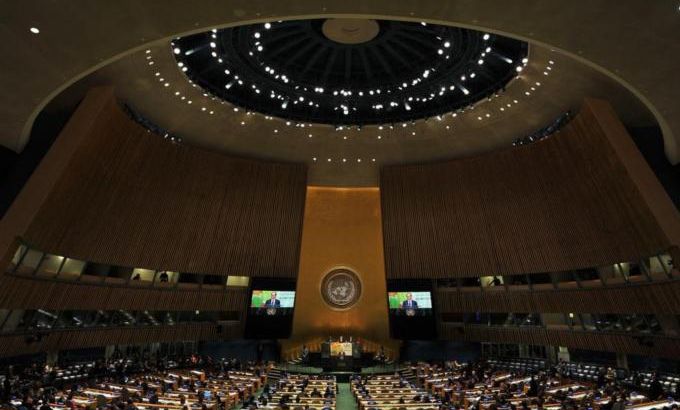UN summit sets goals to combat climate change
Nations sign non-binding targets to reduce global warming, including billions of dollars to help developing nations.

Nations attending a UN summit on climate change have agreed goals to widen the use of renewable energy and raise billions of dollars in aid for developing countries, in an effort to slow global warming.
The one-day summit on Tuesday set goals to halt losses of tropical forests by 2030, improve food production and increase the share of electric vehicles in cities to 30 percent of new vehicle sales by 2030.
The non-binding initiatives were set by various coalitions of governments, multinational companies, cities, financial groups, investors, environmental organisations and other groups.
The targets are meant to help prepare a 200-nation summit in Paris in late 2015 to finalise a deal to slow global warming.
The actions agreed today will reduce poverty, enhance food security ... and benefit communities around the world.
Governments and investors said they would raise more than $200bn in climate financing by the end of 2015, including $30bn in green bonds by commercial banks and $100bn from a group of development banks.
The UN secretary-general, Ban Ki-moon, said the funds would “serve as a catalyst in finalising a universal and meaningful agreement at Paris on climate change in 2015”.
The UN said pledges of financial support would give a “significant boost” to a promise by rich nations in 2009 to raise $100bn a year by 2020 from all sources to help poor countries shift to renewable energy and adapt to heat waves, droughts and rising seas.
Separately, an alliance of about 30 countries including the US and a coalition of multinational firms set a goal of halving losses of forests by 2020 and halting losses by 2030.
If fully implemented, this would remove between 4.5bn and 8.8bn tons of carbon dioxide emissions a year from the atmosphere – equivalent to emissions by all the world’s one billion cars.
Companies including Walmart, Unilever, Wilmar International, General Mills, Asia Pulp and Paper and Nestle, many non-governmental organisations and indigenous peoples’ groups signed up for the plan.
The declaration is backed by more than $1bn from countries including the UK, Germany and Norway. Norway said it would provide up to $300m to Peru and $150m to Liberia.
“The actions agreed today will reduce poverty, enhance food security, improve the rule of law, secure the rights of indigenous peoples and benefit communities around the world,” Ban said.
Among initiatives to curb the use of fossil fuel, one project would raise the share of renewable energy used in power generation in 19 countries in eastern and southern Africa from 10 percent to 40 percent by 2030.
The summit in New York came after a 300,000-strong protest in the city on Sunday, which urged world leaders to do more to stop global warming.
A follow-up rally on Monday targeted the city’s financial heartland to protest against the role capitalism has played in accelerating climate change.